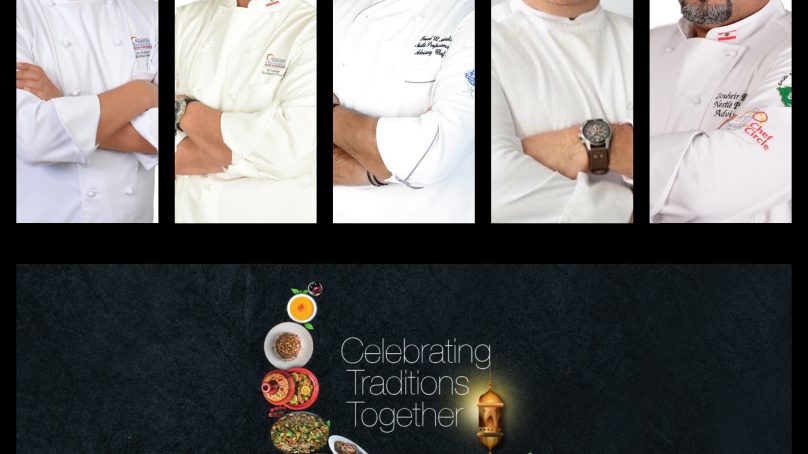
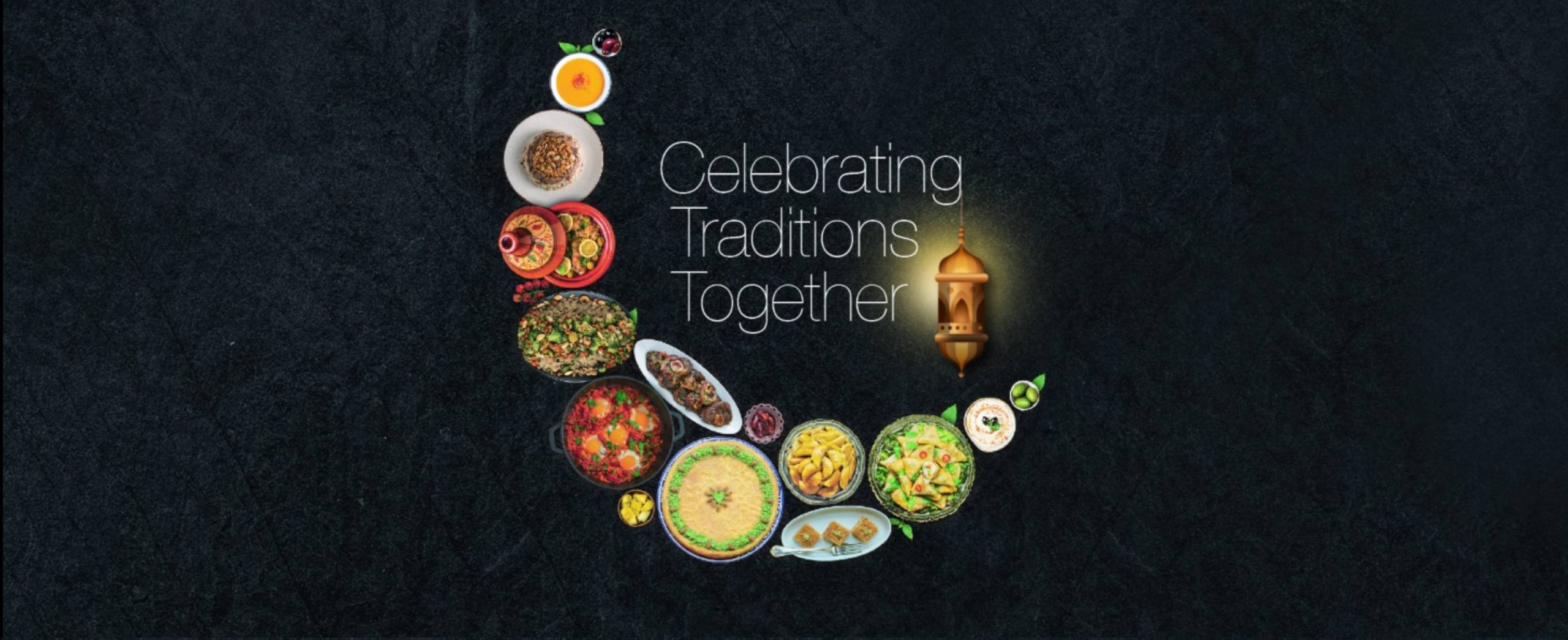
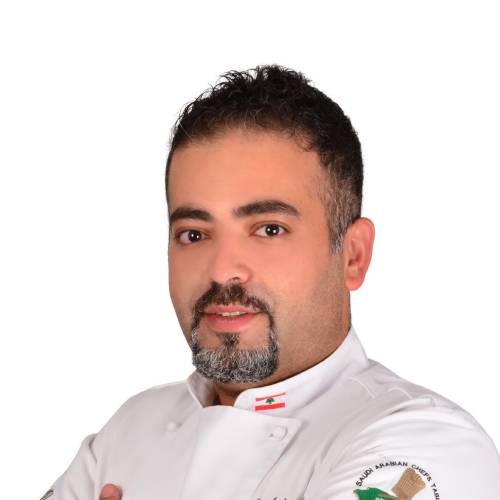
Zouheir Baadarani
Advisory Chef, Nestlé Professional ®
KSA, Jeddah
What culinary specialties can be enjoyed in your country during Ramadan?
Iftar isn’t complete without soup, “foul” or “sambosa,” and the traditional drink “sobia.” It is rounded off with a traditional main dish.
What is your favorite product to work with and why?
MAGGI® Chicken Stock Powder is the most common product that can be used in a variety of dishes to enhance flavor.
Another great item is BUITONI® Tomato Coulis, which is something I use a lot because most oriental dishes contain tomatoes.
Do you have any Ramadan-related cooking tips to share?
Follow recipes to achieve perfect dishes and don’t overcook. It’s important to pay close attention to the number of people to avoid food waste.
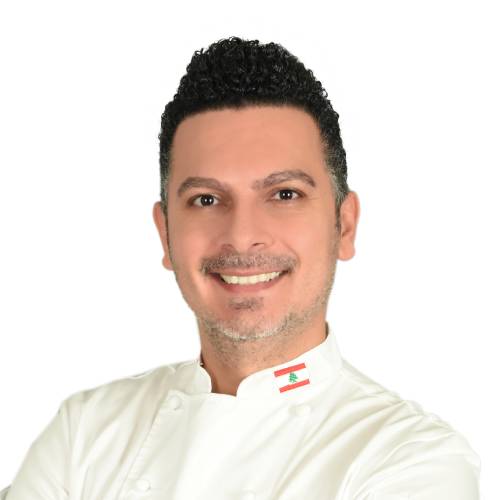
Ali Traboulsi
Advisory Chef, Nestlé Professional ®
Kuwait
What culinary specialties can be enjoyed in your country during Ramadan?
One of Kuwait’s most well-known traditions is the Ramadan “ghabga,” a get-together that usually takes place late at night with light dishes served such as pastries, samosas and sweet bites (mohalabia and Oum Ali).
How does the country stand out when it comes to celebrating the Holy Month of Ramadan?
Kuwait celebrates Ramadan with two main traditional dishes: “hares” — made of mashed wheat, meat, sugar and cinnamon — and tashreeb, which contains broth-soaked bread topped with meat or vegetables.
What is your favorite product to work with and why?
BUITONI® is the perfect product to use in many dishes, especially during Ramadan season. It can be used in dishes such as “dawood basha,” “marag” and soups. It is rich in flavor, consistent and easy to prepare.
Do you have any Ramadan-related cooking tips to share?
While you’re cooking, try to avoid adding a lot of salt as it can stimulate thirst while fasting. Reduce the amount of fatty junk food, deep fried food and limit the sugar you consume.

Elie Lteif
Advisory Chef, Nestlé Professional ®
UAE/Oman
What culinary specialties can be enjoyed in your country during Ramadan?
During Ramadan, people prepare traditional recipes. In some areas, iftar is presented in a more modern way. The thing to remember is that the UAE is home to so many nationalities that we are now seeing more trendy variations of traditional dishes, such as kale tabbouleh and different soups.
How does the UAE stand out when it comes to celebrating Ramadan?
You only need to take a look at the TV shows, cooking apps and social media to realize that the UAE is one of the biggest platforms for food. During the Holy Month, many expatriates fast for a day and enjoy iftar with their friends.
What is your favorite product to work with and why?
My favorite product is MAGGI® coconut milk powder. It’s a great, versatile ingredient that can be used in many different dishes, sweet and savory.
Do you have any Ramadan-related cooking tips to share?
Choose great recipes and find a way to make them suitable for Ramadan. Try to create tasting menus, such as soups and sharing mezze platters for starters, mains that are not heavy on the stomach and small bites to make a trio of desserts.
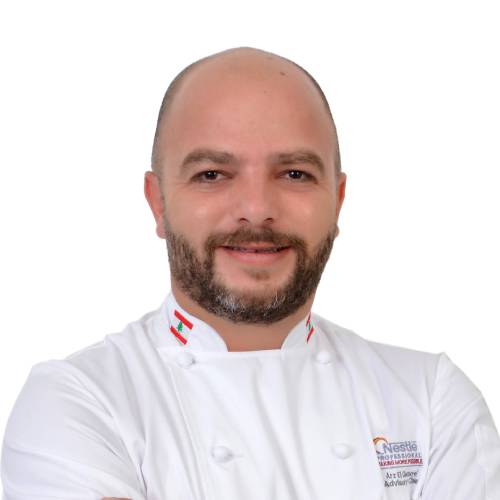
Arz El Gemayel
Advisory Chef, Nestlé Professional ®
Qatar
What culinary specialties can be enjoyed in your country during Ramadan?
Many traditional dishes are prepared during Ramadan and “hares” is one of the most popular. It is made with boiled or ground wheat and meat. The consistency is similar to that of porridge.
Lamb “ouzi” is another popular item. It is a rice-based dish that’s served with very slow cooked lamb, roasted nuts and raisins.
“Thareed” is similar to stew. It contains vegetables, such as potatoes, carrots and beans, and some meat (chicken or lamb), which forms the basis of this Qatari dish.
A well-known dessert is “luqaimat”: soft on the inside and crunchy on the outside. Qataris like to make it the traditional way with butter, milk, flour, sugar, saffron and cardamom. It is typically made with deep fried dough that’s dipped in a sweet syrup or honey.
What is your favorite product to work with and why?
MAGGI® Chicken Stock powder are extremely useful. I use them when I’m preparing soups, appetizers and main dishes.
I also like infusing Docello panna cotta with cardamom and filling the “osmallieh” traditional Arabic sweets with it.
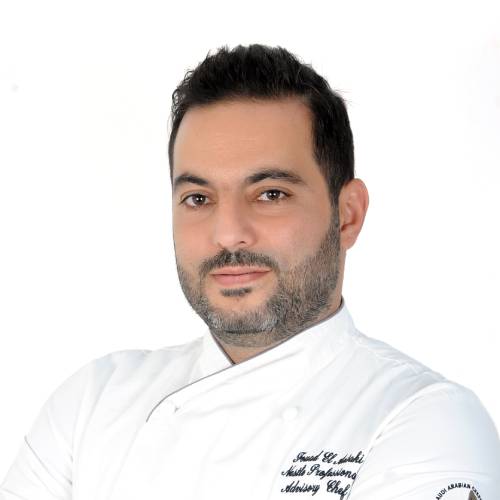
Fouad El Antaky
Advisory Chef, Nestlé Professional ®
KSA, Riyadh
What culinary specialties can be enjoyed in your country during Ramadan?
Ramadan is a special time for Muslims to gather with family and loved ones and share meals. Homes are filled with aromas of cardamom and Arabic coffee. There is also a heady mix of fried dough, prepping for “sambosa” and the sweet smell of “karkadeh,” a hibiscus tea, as well as tasty Arabic sweets, such as “lugaymat” and “atayef” (thin pancakes stuffed with cream or crushed fried almonds with syrup). Saudis break their fast with a few dates, milk or a yogurt drink that’s sometimes mixed with mint leaves. Some families prepare a drinks tray of “qamar al-din” (apricot juice), “sobia” (a traditional Hijaz drink made from barley or bread doused in water for a few days and sweetened with sugar and raisins) and tamarind juice.
What is your favorite product to work with and why?
My favorite product to work with is MAGGI® Mashed Potato because of its versatility; it can be used to prepare potato bund, soups, puree or fried croquette.
Do you have any Ramadan-related cooking tips to share?
Plan your menu during the week in order to avoid leftover food and wastage. While preparing the Ramadan feast, involve your kids; teach them how to cook, educate them regarding dining etiquette, hygiene and health, and show them how avoid wastage by creating different recipes with leftover food.
















